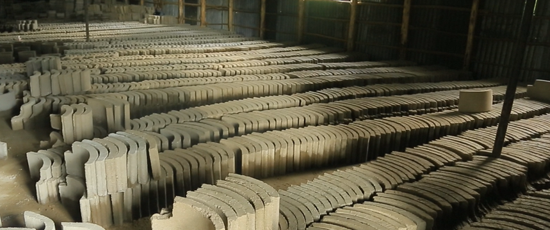
The above photo includes Edgit Behibret Women Association members
Maggie Bukowa, Communications & Fundraising Officer with Vita sent us this report:
The use of open-fire cooking, also known as Sost Gulicha in the Amharic language, is a major cause of deforestation and carbon emissions in rural Ethiopian communities. In addition, a lot of time is spent collecting firewood that could be utilised for other productive activities such as education or economic activities. Therefore, adopting a more efficient and environmentally friendly alternative at a price point many can afford is crucial to facilitate a climate- just energy transition.
Women’s stove cooperatives emerged as a solution. These groups have the membership to enable mass production but face many challenges. Edgit Behibret Women’s Association is a notable example. The association, dealing with various technical, quality, and pricing issues, struggled to sell more than ten stoves per month. The low demand made the venture unprofitable and unattractive for its members.
“Less than four months ago, we could barely sell ten stoves in a month. This made our co-operative unattractive for members. The stoves were too expensive for the community to afford, and the quality was not good. Thanks to our partnership with Vita, we now produce 1,000 stoves a month, and they are bought right away,” said Amarech Dage, the leader of the co-operative, with a smile.
Vita, through its partnership with the Vita Green Impact Fund, is providing support, training, and market linkages for women stove producer groups in rural Ethiopia. This partnership empowers women with the skills to mass-produce quality, fuel-efficient cookstoves, resulting in increased production and profitability. The direct impact is that members can now rely on their enterprise for employment and income.
To ensure affordability, Vita subsidises the production cost and provides links to Rural Saving and Credit Cooperatives (RUSACCOs), which then offer credit for stove purchases at very low interest rates.

The above photo shows fuel-Efficient Cookstove waiting to be distributed to households
Improved Fuel-Efficient Cookstoves (FES) are innovative, requiring less cooking fuel and emitting 50% less pollution-– in the form of toxic fumes and CO2 emissions – than traditional open-fire cooking practiced in most rural East African communities.
“Demand for the stoves has gone up. Vita has been sensitising communities on the negative health, social, and environmental effects of our traditional cooking methods. As a result, over 90% of the households in our community are switching to the use of fuel-efficient cookstoves,” Amarech added.
Since the partnership with Edgit Behibret Women Association, the group has successfully produced and sold over 4,000 improved fuel-efficient cookstoves translating into over €15,000 in revenue. This income as not only led to increased standards of living, but also given women economic and financial independence.
“Through this partnership, we have seen a tremendous positive impact on our community. Vita not only connects us to markets, but also offers training in quality stoves production and financial record keeping. All this has made us to be financially independent,” stated Amarech.
